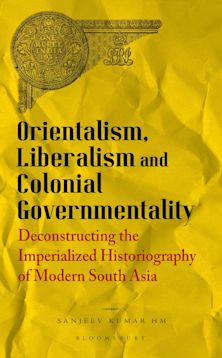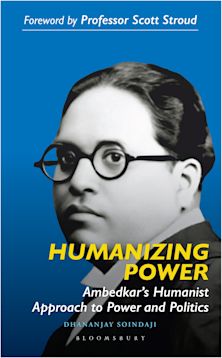- Home
- ACADEMIC
- Politics & International Relations
- Asian Politics
- Remodeling Democracy
Remodeling Democracy
Managed Elections and Mobilized Representation in Chinese Local Congresses
Remodeling Democracy
Managed Elections and Mobilized Representation in Chinese Local Congresses
You must sign in to add this item to your wishlist. Please sign in or create an account
Description
This book explores why, how, and under what conditions a single-party regime uses formal democratic institutions to strengthen its rule. Zhongyuan Wang challenges the traditional perceptions that the Chinese congress acts either as mere window dressing or as an immediate catalyst for democratization. He argues that managed elections and mobilized representation are two strategic cards of China’s one-party regime. By downplaying input electoral competition but promoting output congressional representation, the Chinese Communist Party has been committed to remodeling its unique brand of “socialist democracy” as an alternative to liberal democracy. Such a model of democracy with Chinese characteristics features the “Leninist trinity” of the Party’s leadership, the rule of law, and people’s sovereignty, as well as a new form of mobilized representation that relies heavily on non-electoral accountability from the top down. Remodeling democracy enables China’s one-party regime to enhance its resilience and consolidate and sustain its rule.
Table of Contents
Chapter 2: Research Design and Methodologies
Chapter 3: Institutional Design and Development of Chinese Congress
Chapter 4: Playing by the Rules: How China's Party Regime Manufactures Certainties in Direct Congressional Elections
Chapter 5: Closing the Window of Opportunity: The Party Regime's Adapted Strategies for Managing Independent Candidates
Chapter 6: Engineering Representation:Mobilized Representation in Chinese Local Congresses
Chapter 7: Conditions for Regime Consolidation by Elections
Chapter 8: Conclusion and Looking Forward
Product details
| Published | 06 Oct 2020 |
|---|---|
| Format | Ebook (Epub & Mobi) |
| Edition | 1st |
| Extent | 340 |
| ISBN | 9781793621092 |
| Imprint | Lexington Books |
| Illustrations | 17 b/w illustrations;17 tables; |
| Series | Challenges Facing Chinese Political Development |
| Publisher | Bloomsbury Publishing |
About the contributors
Reviews
-
Legislatures in authoritarian regimes are commonly understood either as a potential means of democratization or as mere window dressing. Zhongyuan Wang’s fascinating study of local legislatures in China presents a different argument. Township and county congresses, he suggests, can also play an important role in authoritarian resilience. By managing elections and mobilizing representation, the Chinese Communist party-state leverages legislatures for its own benefit. This is an original and informed study that offers valuable insight on the sources of regime strength in China and other authoritarian regimes.
Elizabeth J. Perry, Harvard University
-
This is a path-breaking book— and not just for those interested in the politics of the PRC. Wang manages to wrangle out of a comparison between the introduction and conduct of elections in mainland China and Taiwan, a convincing explanation for an enduring puzzle: why do single-party regimes bother to hold elections? And, he adds, what determines their longer-term consequences for their survival or transformation?
Philippe C. Schmitter, European University Institute
-
Remodeling Democracy is a brilliant and meticulously researched study of how China’s local-level democratic institutions negotiate the shrinking gap between genuine political representation and Chinese Communist Party guidance and control. This is a must-read for anyone wishing to understand the realities of China’s political system beyond the easy stereotype of illiberal authoritarian rule.
Frank Pieke, Leiden University
-
The major findings of this book contribute not only to the understanding of the party-state-society relations in China and its resilience to its political system, but also to politics at the local level and in general. Thus, it is conducive to the understanding of both the field of Chinese politics and the field of comparative politics.
Thomas Heberer, University of Duisburg-Essen
-
How does representational authoritarianism work in present-day China? How does the Communist Party remold the representation function of local congresses, hence recalibrating the relationship between state and society? To what extent do managed elections and mobilized representation bring about regime legitimacy, and can they serve as an alternative model of representation in contemporary political systems? These are some of the core questions raised in Zhongyuan Wang's thought-provoking new book.
Gunter Schubert, University of Tuebingen

ONLINE RESOURCES
Bloomsbury Collections
This book is available on Bloomsbury Collections where your library has access.



































